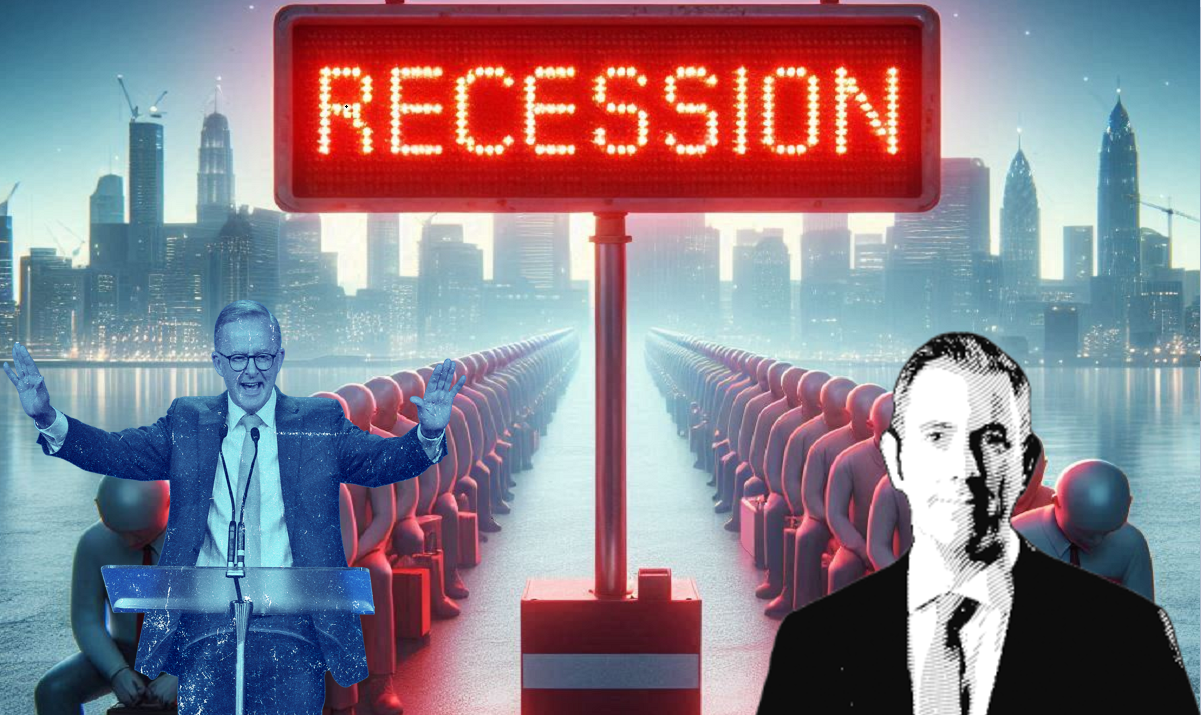When Fatima Payman derailed her Labor career, her husband was collateral damage

- by Admin
- August 18, 2024
Months before Senator Fatima Payman’s tug-of-war between her conscience and Labor Party loyalty began playing out on the national stage, a private struggle was going on at home.
The then-West Australian Labor senator was newly married to Jacob Stokes, a man who had devoted eight years to the Labor movement, rising to become an advisor to a WA Labor minister.
Payman, 29, tells ABC’s Australian Story, that Stokes is “the best thing that’s happened to me” — but there was no honeymoon period after their February wedding.
Soon after their February wedding, Senator Payman and Jacob Stokes were grappling with their biggest decision. (Supplied)
Instead, the couple was wrestling with the question of how Payman, an Afghan-born Muslim, should deal with pressure to persuade the Albanese government to take stronger action against Israel over its ongoing war in Gaza, and to implement the ALP’s platform of recognising Palestine as an independent state.
“Community members, people I’d grown up with, were messaging me and saying, ‘What’s your government doing?'” Payman says.
“To defend the government while trying to be part of a community was me being stuck between a rock and a hard place.”
Stokes, a convert to Islam, was horrified by the death and destruction in Gaza caused by Israeli attacks in the wake of Hamas’s brutal raid on Israel and the taking of hostages on October 7 last year.
But the Labor staffer thought Payman should work for change within the party and maintain her pledge to uphold Labor’s much-vaunted, century-old caucus solidarity. He urged her to “toe the party line”.
“We had arguments about it,” Stokes says.
“[I thought] the best way to do it is to advocate from within and to raise your voice within caucus. As someone who was on the inside seeing everything that she was going through, I still had that opinion at the start.”
Plus, he was worried about his job.
“I’d help where I could, but other times I’d have to say to her, ‘I don’t want to get in trouble. I don’t want to get in trouble. I’ve got a job and this is a conflict.'”
But the weeks went on, and Payman became increasingly frustrated that her representations to senior ministers, including her Labor idol, Foreign Minister Penny Wong, failed to significantly shift the ALP’s highly managed diplomatic responses to the Israel-Palestine conflict into stronger action.
Senator Payman claims Wong advised her not to go against the Labor Party caucus. (AAP: Mick Tsikas)
Stokes’s adherence to caucus solidarity began to falter. He watched as Islamic community members turned their backs on Payman as the couple arrived at the mosque to pray. He was the one rushing her to hospital when migraines brought on by stress became so severe, she’d vomit, or almost faint.
So, Stokes told his wife she had his support, whatever decision she made.
“The moment I said that I support you and I’m going to be there no matter what you decide to do and she came out and she said that it’s a genocide, we knew there was no turning back,” Stokes says.
“She probably wasn’t going to be preselected again, that once you do something like that in the Labor Party, that is the beginning of the end.”
Jacob Stokes says he has “no regrets” after quitting his Labor Party job and supporting his wife’s decision. (Australian Story: Nicholas Martyr)
Just a few weeks after she held that press conference labelling Israel guilty of genocide (a claim strenuously denied by Israel and not supported by the Australian government), Payman crossed the floor to side with the Greens on a motion declaring an urgent need “for the senate to recognise the state of Palestine”.
Alarm bells rang for Payman’s colleagues earlier in the day when she abstained from an amended motion put by the ALP, which added that recognition be part of a peace process towards a two-state solution.
After crossing the floor, Payman was reprimanded by the prime minister, Anthony Albanese, and told not to come to caucus for two weeks.
But when Payman appeared on the ABC’s Insiders to say she’d support the Greens’ motion again, she was indefinitely suspended by Albanese.
A few days later, Payman left the ALP but is holding onto the senate spot, despite Albanese’s calls for her to return the seat to Labor.
Soon after, Stokes decided it was untenable to stay in his job and quit but remains an ALP member.
Senator Payman stared down the Labor Party machine and refused to remain silent. (AAP: Lukas Coch)
Payman knows there is debate about whether her manoeuvrings were due to naivety or a more Machiavellian agenda.
The fact that, before she crossed the floor, she consulted with Glenn Druery, the political strategist dubbed “the preference whisperer” for his work guiding minor parties to electoral success, raised the eyebrows of many, including Albanese.
Payman admits Druery suggested appearing on Insiders. Now, she’s hired Druery as her chief-of-staff — and he is already talking about Payman forming her own party.
“It’s certainly a discussion we need to have,” says Druery, who objects to Senate reforms that make the election of independents and minor parties more difficult.
Payman will not rule out forming her own party but does rule out joining the Greens or an Islam-based party.
“I clearly object to the formation of any faith-based party, because especially for senators who represent a massive constituency, it’s very important to represent people from all walks of life.”
She dismisses being Machiavellian and says her aim now is to achieve “goodies and brownies” for WA.
“I’m not here to play games or be obstructive,” she says.
“I feel a bit naive about how politics works. I may have come into politics with being overly ambitious and optimistic and … that was crushed really fast.”
Still, Payman remains defiant.
“I’m definitely at peace with the decision I’ve made.”
How Payman became an ‘accidental senator’
Payman was never expected to win her Senate spot in the 2022 federal election. The former Young Labor WA president and United Workers’ Union organiser was third on the ALP ticket, a position that had not seen a Labor victory since 1984.
But a “red wave” swept across WA and, with Stokes, then a Labor colleague, driving her campaign, Payman won the spot, earning the title of “accidental senator”.
Labor celebrated Payman’s arrival in Canberra, heralding the fact she was the first hijab-wearing politician in federal parliament and using her election to point to the party’s embrace of diversity.
At age five, Payman fled with her family from Afghanistan to Pakistan when the Taliban took control.
At age five, Senator Payman fled with her family from Afghanistan to Pakistan. (Supplied: Fatima Payman)
Life in Pakistan was hard, and her mother, Shogufa, urged her father, Abdul Wakil, to find a better life for their family. In 1999, he made his way to Indonesia, then onto a boat bound for Australia where he spent time in a detention centre. On release, he worked a variety of jobs to raise funds and sponsored his wife and children to come to Australia. They’d been apart four years.
Payman, the eldest of four, was a bright and responsible child, becoming the head girl at WA’s Australian Islamic College.
“I was always a teacher’s pet,” she says.
“Didn’t have a great reputation amongst my peers … they all referred to me as ‘the snitch’.”
A young Fatima Payman (far right) with her family shortly after arriving in Australia. (Supplied: Fatima Payman)
She began studying biomedical science at university but switched her degree to anthropology and sociology. As she set her sights on doing honours in ethnography, her father was diagnosed with acute myeloid leukemia. He died within a year.
One way Payman dealt with the grief of his death in 2018 was by volunteering, which led her to the Labor Party.
“Grassroots activism, campaigning, that’s what drew me to wanting to learn more … the party structure, how the Labor Party operated,” she says.
Fast forward to early 2024 and the newbie senator was speeding towards a powerful lesson in the tribal nature of Labor politics.
Senator Payman is welcomed to the federal Labor caucus by Prime Minister Anthony Albanese, on July 25, 2022. (AAP: Mick Tsikas)
Anne Aly, a federal Labor minister, fellow West Australian and Muslim, says Labor members sign up to caucus solidarity and “it’s become very apparent to me that caucus solidarity is how we make change”.
“Look at the things that we’ve been able to deliver as a government; none of those things happened because of a single individual … They happened because of collective action from the caucus.”
She says caucus solidarity does not mean there is no debate.
“Solidarity means coming to a collective agreement after much debate, in some cases, and rigorous debate in many cases.”
Aly argues Payman had options other than crossing the floor but says: “Ultimately, this is an intelligent, strong, smart woman who exercised her agency with full knowledge of what the consequences were and what she was doing.”
Senator Payman joined students at the picket lines in a pro-Palestine protest. (Supplied: Fatima Payman)
Albanese has raised the fact that Payman had never spoken out in caucus about the issue. Payman argues senior colleagues told her on arrival at parliament that caucus leaked, and it was not the place to raise issues if a member wanted the discussion kept confidential. Aly says she was never told this and feels safe raising issues in caucus.
Instead, Payman says she took her concerns to Albanese, Wong and other colleagues. She claims speeches and social media posts she prepared were vetted and watered down. “We couldn’t even say this many Palestinians were killed. We were saying Palestinians died as if it was a natural disaster.”
Supporters of Palestine felt the government’s responses favoured Israel, and wanted “more equality in the way we were treating the Israelis versus the Palestinians”.
Since Payman’s defection, the prime minister has spoken strongly about the need for social cohesion but Payman says she feared that cohesion would fray if pro-Palestinian concerns were not appropriately heard.
Several crunch points came, including the killing of Australian aid worker Zomi Frankcom in a drone strike in Gaza in April. Payman phoned Wong and asked to speak out. She says she was told not to. Wong declined to comment on a private conversation.
Wong knew well the restrictions of caucus.
Wong, who recently married her long-term partner Sophie Allouache, had kept loyal to Labor solidarity rules when she had to vote against same-sex marriage before Labor changed its position.
But Payman couldn’t honour her pledge. On June 25, she took “the longest walk of my life” and crossed the floor to vote with the Greens on recognising Palestinian statehood. It was a symbolic act but, says Payman, “significant visual and symbolic action is required to make the community, the pro-Palestinian community, feel like they are being seen and heard”.
After wrestling for months with her conscience and her party loyalty, Senator Payman defied the ALP’s party line and crossed the floor. (Australian Story: Nicholas Martyr)
Payman’s brief association with the ALP has ended and she will forever be known as a “Labor rat” but her experience has convinced her that change needs to occur.
“I feel like the Labor Party really needs to review their rules because I don’t think they’re ready to have diversity with a voice,” she says.
“They want diversity but voiceless.”
Aly rejects this assessment. “It has been my experience that not only am I given a seat at the table, I am also given a voice,” Aly says.
Loading…
‘Courage and strength of conviction’ to speak up
No longer a cog in a party machine, Payman is now negotiating life as an independent senator, ordering corflutes, setting up a website and conducting a listening tour of WA.
She has another four years before her Senate spot goes before voters but her chances of holding it are thin. It was the ALP brand that won her the seat in 2022, with her personal vote of 1,681, compared with the ALP’s 511,000 votes.
Payman says she’s holding the seat because Labor rank and file and community members have begged her to stay.
“They have finally found somebody who was able to use that courage and have the strength of their conviction to say no and to stand up against people being complacent or quiet about a genocide”.
Senator Payman felt Labor wanted “voiceless diversity” from a “token Muslim hijabi”. (Australian Story: Nicholas Martyr)
Payman admits she has met with The Muslim Vote, which she says is “an organisation to help people build their political literacy” and different to Muslim Votes Matter, which plans to field federal candidates in western Sydney.
As for her chances of retaining her spot: “Whether it’s four years or whether it’s four decades, I’m here to do the job … If people in Western Australia think I’m doing a shocking job, they can kick me out next election.”
Senator Payman went on a 12-day listening tour across WA, covering almost 7,500 kilometres, to learn the concerns of constituents. (Supplied: Instagram/ Fatima Payman)
Stokes will be beside her. His recent conversion to Islam was driven in part by his desire to marry the woman he came to admire on the hustings in 2022.
He’s been Payman’s sounding board, waited for her outside The Lodge in the car while she was being castigated by the PM, and given up a job with a party he’d devoted his working life to.
He hopes the ALP will modify its inner workings, such as caucus solidarity rules. Many argue those rules have enabled the ALP to remain a powerful, government-winning political party for more than a century.
But Payman’s case – and the fragmentation in Australian politics, with the rise of minor parties and independents – has again raised the question of modernising the ALP rulebook to allow more room for dissent.
“When every politician was a middle-aged white man, you probably didn’t disagree on much,” Stokes says.
“It’s not the early 1900s. You can’t recruit a young hijabi Muslim woman and expect her to think and feel and want the same things as a middle-aged white man, regardless of what caucus agrees to.
“I think the Labor Party needs to look at that and say, ‘If we want to accept young people, diverse voices, there needs to be some wiggle room on things like caucus solidarity’.”
Watch Senator Payman’s Australian Story, Flashpoint, 8pm, on ABCTV and ABC iview.
Loading…
The Latest News
-
December 23, 2024Championship three-peat reward for ‘clinical’ Aussies | cricket.com.au
-
December 23, 2024Australian tennis star Purcell takes on voluntary provisional suspension for breaking anti-doping rules
-
December 23, 2024‘Back myself and be fearless’: Konstas lives by mantra in first hit | cricket.com.au
-
December 23, 2024Wimbledon champion accepts ban for anti-doping breach just months after winning US Open
-
December 23, 2024Australian tennis star Purcell takes voluntary suspension over anti-doping breach





